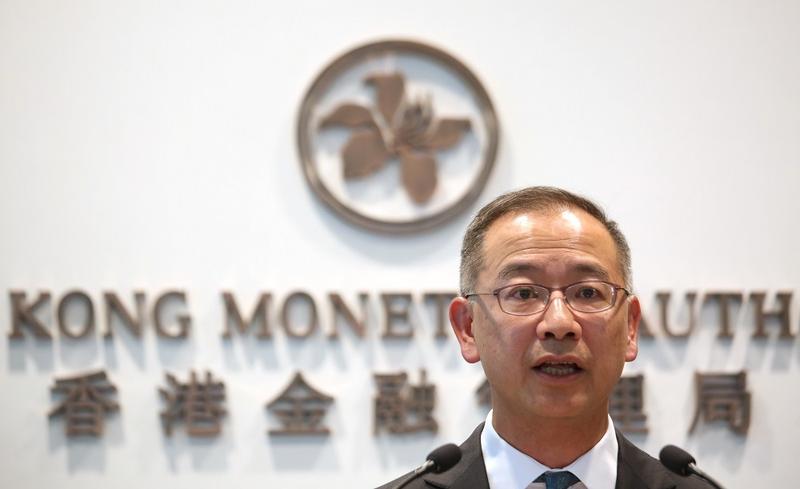 Chief Executive of the Hong Kong Monetary Authority Eddie Yue Wai-man speaks at a press conference in Hong Kong on March 16, 2020. (PARKER ZHENG / CHINA DAILY)
Chief Executive of the Hong Kong Monetary Authority Eddie Yue Wai-man speaks at a press conference in Hong Kong on March 16, 2020. (PARKER ZHENG / CHINA DAILY)
HONG KONG - The Hong Kong Monetary Authority (HKMA) cut bank capital buffers to free up HK$500 billion (US$64 billion) in cash to stoke lending in the struggling Asian financial hub.
The city’s de-facto central bank on Monday lowered its countercyclical capital buffer imposed on banks to 1 percent from 2 percent. That came after it also reduced its base rate by 64 basis points to 0.86 percent, hours after the US Federal Reserve cut its by 100 basis points, in the second reduction this month by both monetary authorities.
The HKMA on Monday lowered its countercyclical capital buffer imposed on banks to 1% from 2%, and also reduced its base rate by 64 basis points to 0.86%
ALSO READ: US Fed cuts rates to near zero amid coronavirus fears
The lower buffer frees up about HK$500 billion to support lending, the authority’s chief executive, Eddie Yue Wai-man, said at a press briefing late Monday, adding that there’s scope to reduce it further.
"Economic indicators and other relevant evidence have signaled that the economic environment in Hong Kong has deteriorated further since the novel coronavirus outbreak. The HKMA has been taking actions, including the establishment of the Banking Sector SME Lending Coordination Mechanism, to encourage the banking sector to continue supporting the financing need of SMEs in Hong Kong," Eddie Yue Wai-man, HKMA's chief executive, said.
READ MORE: HK follows US Fed, cuts base rate for first time since 2008
Hong Kong, which has pegged its currency to the US dollar, typically mirrors move by US policy makers to keep the link stable, but the easing will also help an economy that’s headed for its second annual contraction and where unemployment is soaring. Central banks worldwide are stepping up monetary stimulus to counter the effects of the coronavirus, which has become a pandemic.


